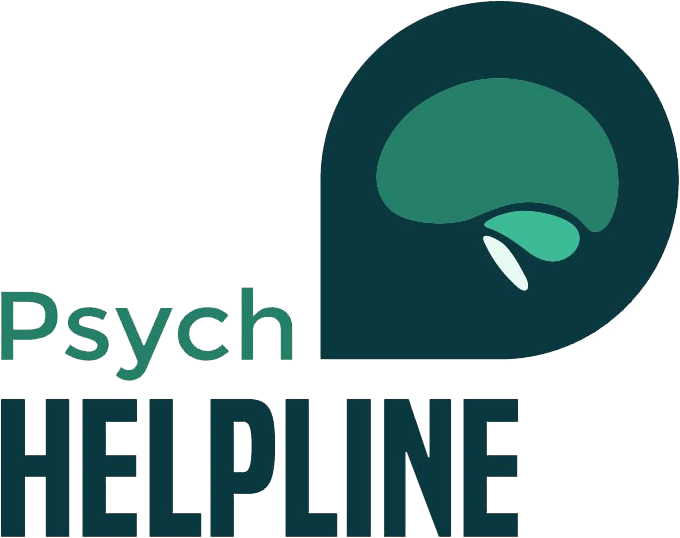Table of Contents
Instead of forming an interdependent relationship bound by limits, some people tend to ask for a little more. It’s commonplace for such individuals to heavily rely on a friend, family member, partner, or close confidant for their emotional needs. When these emotional demands are at their very peak it becomes impossible for that very individual to function without the emotional sustainability provided by another person. This phenomenon is known as emotional dependency or the act of being extremely reliant on someone else for emotional fulfillment.
How much is too much? This is a question we all tend to ask ourselves while demanding anything in a relationship. Relying on a close confidant, whether romantic or unromantic, is extremely necessary considering how life comes with its ups and downs. Self-reliance to an extreme limit can be toxic. Yet at the same time, extreme reliance on someone else can be as damaging as the former.
Here are some dead giveaways that can help you spot the extreme need for emotional dependency in someone around you;
How To Spot An Emotionally Dependent Person
Here are some red flags that can indicate the need for emotional dependency;
- Such individuals are constantly insecure about themselves. This insecurity often stems from low self-esteem and the fear of being left alone. One can often find themselves finding faults in their personality or appearance as they don’t find themselves worthy of love.
- They tend to be extremely controlling and obsessive when it comes to their partners. To make sure they won’t lose that person or the emotional support that person provides they’re mostly obsessive about their partners’ life e.g. keeping account of their chats, web history, or call logs, keeping track of their location, etc.
- People that struggle with emotional dependency tend to get jealous pretty easily. They tend to consider a specific person the source of their emotional support. So, if he/she shows any kind of interest in someone else, then they can be less understanding and very possessive from the get-go.
- Someone with a pattern of emotional dependency might find it harder to get over a past relationship or broken friendship. One can find such folks longing for an ex for longer periods despite being single for a while.
- The immense need for reassurance is another huge giveaway. Such individuals need constant reminders that they’re loved and not being overbearing.
- They have a constant need to get approval from their emotional support; a parent, partner, or friend. There’s a lack of individuality in every decision they make. For instance; getting a thumbs up from a partner before planning something trivial.
- If you’re emotionally dependent on someone you might feel like there’s no purpose behind your life if you’re not with them.
- Such individuals often fail at sorting their problems on their own. Instead of conjuring up a solution on their own, they always rely on their emotional supportive partner or friend for relief.
- They’re always in a constant state of anxiety
- Folks of this sort can be obsessively scared of being left off. They might consider small signs as big indicators. For instance; if you miss a couple of calls from an emotionally dependent partner he might deduce that you’ve lost interest in them.
- An emotionally dependent person can withstand abuse from someone else if they’re still getting emotional support in return. They’re so far off in their need for emotional sustenance that being in a verbally or physically abusive relationship wouldn’t appear toxic to them.
Emotional Dependency: 3 Major Causes Behind The Problem
Personal Experiences
Someone who has hit some rough patches in the past might still be injured without even realizing it. A bad breakup with an ex can sometimes push others towards seclusion but not all fingers are equal. In some cases, it can have an opposite effect on someone and turn into an extremely needy person. The fact that they’ve been ditched by someone in the past increases their need for emotional support. It can increase the fear of abandonment inside them which coerces them into holding the new person in their life even tighter.
Irrational Romantic Ideas
The role that films, shows, and other forms of media play in our life is very much obvious in our day-to-day activities. It has the power to shape people’s minds and beliefs. This is why it’s so easy for clichés and other romantic, irrational, lofty ideas to influence how we act. The idea of being one with your better half might sound great on paper but it’s a recipe for disaster in real life. Being extremely reliant on a romantic partner is a dysfunctional pattern advertised by romantic books and films. So undoubtedly, what we’re consuming for ages is bound to leave a dominating impact on our psyche.
The Role Played By Caregivers
The earlier years of a person’s life shape them into the adults they’ll become later on. The more dysfunction a person’s childhood is the more likely they’re of adopting dysfunctional habits. A person who’s been raised in an apathetic environment with a lack of emotional fulfillment usually tends to grow up with an exceeding craving for empathy.
So whenever they get a chance to have an emotionally fulfilling relationship with someone else as adults, they ask for more than their share. It’s easy for someone like that to go a little overboard because they simply don’t know how to act in an emotionally sustained situation. The fear of missing out on all this once again can make them emotionally dependent.

Love or Emotional Dependency: Learn The Difference
The Need For Control
While being an emotionally dependent individual, some folks tend to become a tad more controlling. Instead of living in the moment and taking things slowly, they’re constantly stuck in a loop of worrying. On the contrary, a love-fueled relationship usually seems more low-key. Of course, there are efforts on both ends to maintain the relationship as perfectly as possible, but there’s still an element of security to it. When you’re emotionally dependent on a friend or a partner, you’re more likely to panic whenever you lose control over the situation.
One mistake and you start fearing for the demise of that relationship even when the idea of separation seems far-fetched to the other person. Love offers you security but once you really amp up that need for security, it turns into an immensely codependent situation.
The Involvement Of Fear
Another difference that draws a huge line between love and emotional dependency is the difference of priorities. Loving someone whether it’s a romantic or platonic partner, comes with a decent amount of fear. When you’re in love, you surely don’t intend on parting from them because you actually love them or envision a future with them. You both share a healthy bond and the impending grief comes from the breaking of this bond.
On the contrary, when someone’s emotionally dependent on another person the fear of parting stems from the fear of being alone. In simple terms, an emotionally dependent individual would want to stay together solely because they don’t wish to be alone once again. In a truly loving relationship, both partners are scared of not being together. Meanwhile, in an emotionally dependent one, the sole need for support and the fear of being single is the only thing that sticks them together.
The Difference Of Priorities
If you’re even slightly suspicious about a romantic relationship ask yourself a single question. Are you romantically involved with someone because you love them or only because they love you? The latter might seem a little too selfish but it’s the truth. Being loved and doted on by another person can place a temporary curtain on people’s self-esteem issues and other insecurities. That’s a classic case of emotional dependency. An emotionally dependent person’s need for a bond doesn’t always arise from a place of love but a place of need. Thus their priority in that relationship isn’t the love you both share but the immense emotional backup a partner or friend provides them.
The Unbeatable Pressure
A loving relationship doesn’t take away your individuality. In a relationship fueled by love, both parties feel completely comfortable and there’s no need for conformity. They feel extremely free to voice out their own opinions and practice their own habits. Meanwhile being emotionally dependent on someone makes you more scared of how the person you love views you.
It’s a constant battle between what you want and what your partner wants to see you as. An emotionally dependent individual will try their best to appeal to their partner’s choice because of the fear of being dumped and left alone. So, if you constantly find yourself scared of not being liked because of your personal choices, you need to reconsider that relationship.
Openness Vs Unusual Withdrawal
Love opens you up in unimaginable ways. It’s a transformative force that can introduce you to so many new aspects related to your life. If you’re in a healthy relationship with someone you’ll be open to trying out new things and would love to see things in a new light maybe just for the thrill of it all. In short, love can really change someone for the better instead of leading to a withdrawal. In a relationship fueled by love, both parties are comfortable spending time alone when it’s required.
There’s a proper concept of personal time where both individuals find the space to evolve on their own. Meanwhile in a relationship fueled by emotional dependency, both or one of the partners can be extremely codependent. The idea of spending time alone or doing something on their own scares them. Thus, the emotionally dependent partner will find more and more loopholes to spend most hours together, without parting.
Emotional Dependency & Its Negative Impact
Living with someone who’s extremely emotionally dependent on you can be very draining. You’ve got to offer them timely reassurance, withstand their emotional breakdowns, and obsessive need to be together at all times. All in all, it’s a toxic situation that no one deserves to be in because of the extreme stress it can cause. It can affect the relationship both individuals share and can lead to constant fights.
Emotional dependency also takes a huge toll on the person who’s on the receiving end. Their constantly under stress because they don’t wish to be abandoned by the person they’re relying on. Their constant need for approval can affect their career and the other people close to them. Such individuals often abandon any other relationships close to them and place their sole focus on the person fulfilling their emotional needs.
Additionally, they can often neglect their own needs while focusing on what their partner might like them to do. Being emotionally dependent can be even more damaging in a situation where abuse is involved. It’s even harder for victims to leave an abusive family member or partner when they have no one else to provide them with emotional sustenance.
Is It Possible To Eradicate Emotional Dependency?
Yes, it is possible to eradicate the behavioral patterns one has internalized for a long while. Through regular therapy, anyone can rediscover their relationship with emotional fulfillment and dictate new boundaries. A therapist can also help you discover the reasons that trigger this emotional response in you and damage your relationships in the long run. Talk therapy is a great solution if your need for emotional dependency stems from attachment issues in your childhood. Couples can seek great help from couples counseling and find ways to break this toxic habit of extreme dependency.
Final Words
You can also talk with a counselor to find positive coping mechanisms that provide you relief. It can help you ground yourself whenever you find yourself being too needy for emotional dependency. We hope that some of the red flags discussed earlier will help you analyze your future relationships in a clearer light.







